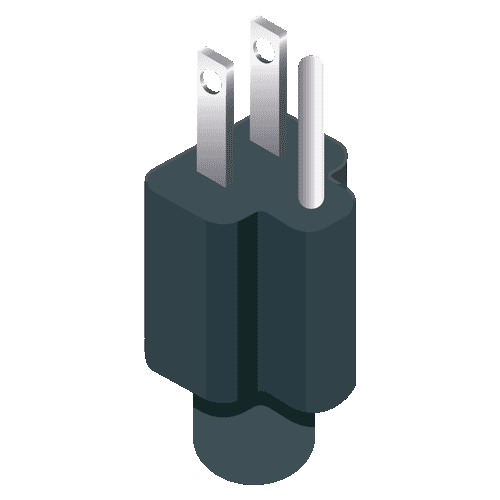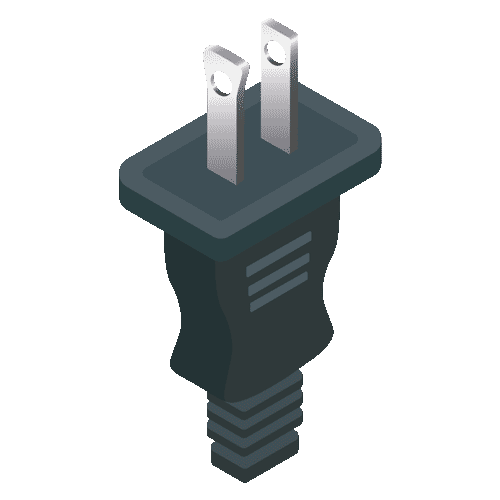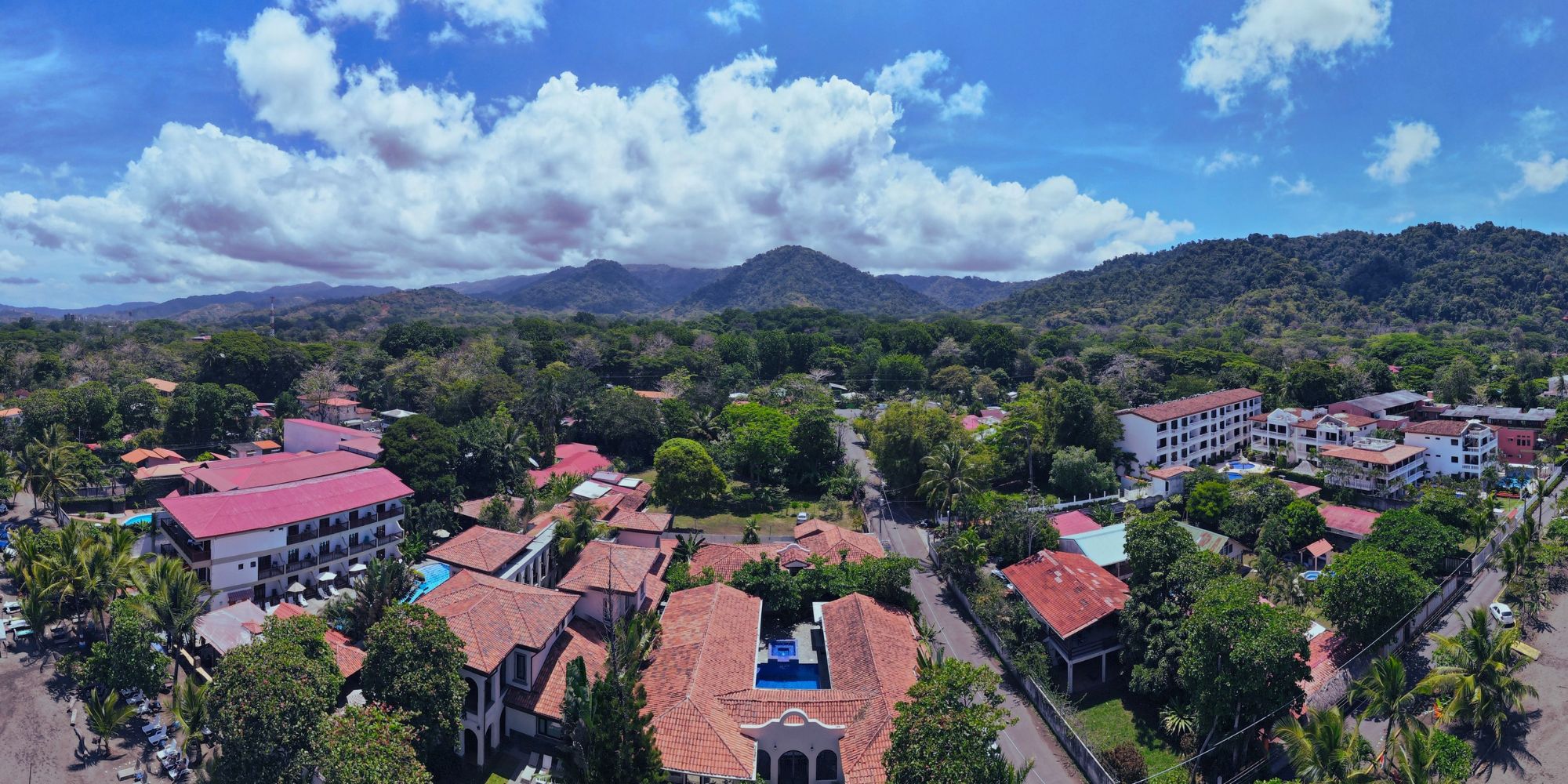Comprehensive Guide To Plugs In Costa Rica: Everything You Need To Know
When traveling to Costa Rica, understanding the electrical system and plug types is crucial for ensuring your devices remain charged and functional throughout your trip. Whether you're planning a short getaway or an extended stay in this beautiful Central American country, you'll need to know about the plug types, voltage standards, and adapters required. This guide will provide all the essential information to help you prepare for your journey.
Costa Rica is renowned for its breathtaking landscapes, vibrant culture, and eco-friendly tourism. However, as a traveler, it's important to be aware of the country's electrical system to avoid any inconvenience. In this article, we will explore everything you need to know about plugs in Costa Rica, including the types of outlets, voltage requirements, and safety tips.
Whether you're charging your phone, laptop, or other electronics, having the right information about plugs in Costa Rica can save you from potential headaches. Let's dive into the details to ensure you're fully prepared for your adventure.
Read also:Jan Ross The Remarkable Journey Of An Iconic Personality
Table of Contents
- Plug Types in Costa Rica
- Voltage Standards in Costa Rica
- Do You Need an Adapter?
- Do You Need a Voltage Converter?
- Travel Tips for Electronics in Costa Rica
- Safety Guidelines for Using Plugs
- Overview of Electricity in Costa Rica
- Common Questions About Plugs in Costa Rica
- Traveler Reviews and Experiences
- Final Thoughts
Plug Types in Costa Rica
Costa Rica primarily uses Type A and Type B plugs, which are similar to those found in the United States and Canada. These plugs have two flat prongs (Type A) or two flat prongs with a grounding pin (Type B). Most travelers from North America won't need an adapter since the plug types are compatible.
Understanding Type A and Type B Plugs
Type A plugs consist of two parallel flat pins, while Type B plugs include an additional grounding pin for safety. Both types are widely used in Costa Rica, making it easy for visitors from regions that use these standards to charge their devices without hassle.
- Type A: Two flat prongs
- Type B: Two flat prongs with a grounding pin
It's worth noting that some older buildings in Costa Rica may still have outdated outlets, so it's always a good idea to carry a universal adapter as a backup.
Voltage Standards in Costa Rica
The standard voltage in Costa Rica is 110V, which is the same as in the United States and Canada. However, some areas may operate at 220V, especially in commercial or industrial settings. It's essential to check the voltage compatibility of your devices before plugging them into Costa Rican outlets.
Checking Voltage Compatibility
Most modern electronics, such as laptops and smartphones, are designed to handle dual voltages (100V-240V). If your device is not dual-voltage, you may need a voltage converter to avoid damage. Always refer to the label on your device or its user manual for voltage specifications.
Do You Need an Adapter?
Travelers from North America generally do not need an adapter since Costa Rica uses the same plug types as the U.S. and Canada. However, visitors from countries with different plug standards, such as Europe or Australia, will need an adapter to connect their devices to Costa Rican outlets.
Read also:Ayesha Curry And Tv Shows A Comprehensive Exploration Of Her Career In Television
Choosing the Right Adapter
When selecting an adapter, ensure it supports both Type A and Type B plugs. Universal travel adapters are a convenient option for those visiting multiple countries, as they accommodate various plug types. Additionally, consider adapters with USB ports for charging smartphones and tablets directly.
Do You Need a Voltage Converter?
If your devices are not dual-voltage, you may need a voltage converter to step down the voltage from 220V to 110V or vice versa. Voltage converters are particularly important for appliances like hairdryers, curling irons, and electric shavers that are not designed for dual voltages.
Tips for Using Voltage Converters
- Choose a converter with sufficient wattage to handle your devices.
- Unplug converters when not in use to prevent overheating.
- Consult the manufacturer's guidelines for specific voltage requirements.
Travel Tips for Electronics in Costa Rica
Traveling with electronics requires careful planning to ensure they remain safe and functional during your trip. Here are some practical tips for managing your devices in Costa Rica:
- Carry a portable power bank for backup charging.
- Use surge protectors to safeguard your devices from voltage fluctuations.
- Keep your devices secure in a waterproof bag during outdoor activities.
Staying Connected in Remote Areas
Costa Rica is known for its stunning national parks and remote destinations. In these areas, access to electricity may be limited. Plan accordingly by charging your devices fully before heading out and investing in a high-capacity power bank.
Safety Guidelines for Using Plugs
Safety should always be a priority when using electrical devices in a foreign country. Follow these guidelines to protect yourself and your equipment:
- Avoid using damaged cords or plugs.
- Never overload outlets with too many devices.
- Unplug devices during thunderstorms to prevent electrical surges.
Understanding Local Regulations
Costa Rica has strict regulations regarding electrical safety. Always use certified adapters and converters to ensure compliance with local standards. If you're unsure about a product's safety, consult with your hotel or a local expert.
Overview of Electricity in Costa Rica
Costa Rica's electrical infrastructure is modern and reliable, with most areas receiving consistent power. The country is committed to sustainable energy, deriving a significant portion of its electricity from renewable sources like hydroelectric power. This commitment to green energy aligns with Costa Rica's reputation as an eco-friendly destination.
Renewable Energy in Costa Rica
According to the International Energy Agency, Costa Rica generates over 98% of its electricity from renewable sources. This achievement highlights the country's dedication to environmental preservation and sustainable development.
Common Questions About Plugs in Costa Rica
Here are some frequently asked questions about plugs and electricity in Costa Rica:
- What plug type does Costa Rica use? Costa Rica uses Type A and Type B plugs.
- What is the voltage in Costa Rica? The standard voltage is 110V, but some areas may use 220V.
- Do I need an adapter? Travelers from North America typically do not need an adapter, but visitors from other regions may require one.
Traveler Reviews and Experiences
Many travelers have shared their experiences with using plugs in Costa Rica. Most report no issues with charging their devices, especially when staying in modern hotels and resorts. However, some have encountered outdated outlets in older buildings, emphasizing the importance of carrying a universal adapter.
Positive Feedback
One traveler noted, "I was pleasantly surprised by how easy it was to charge my devices in Costa Rica. The plug types were the same as at home, and the voltage was compatible with my electronics." Another added, "The power supply was reliable, even in more remote areas."
Final Thoughts
Understanding the electrical system and plug types in Costa Rica is essential for a smooth and enjoyable trip. By preparing the right adapters and converters, you can ensure your devices remain charged and functional throughout your journey. Remember to prioritize safety and consider the environmental impact of your choices.
We invite you to share your experiences with plugs in Costa Rica in the comments below. Your feedback can help other travelers prepare for their adventures. For more travel tips and guides, explore our other articles on our website.


